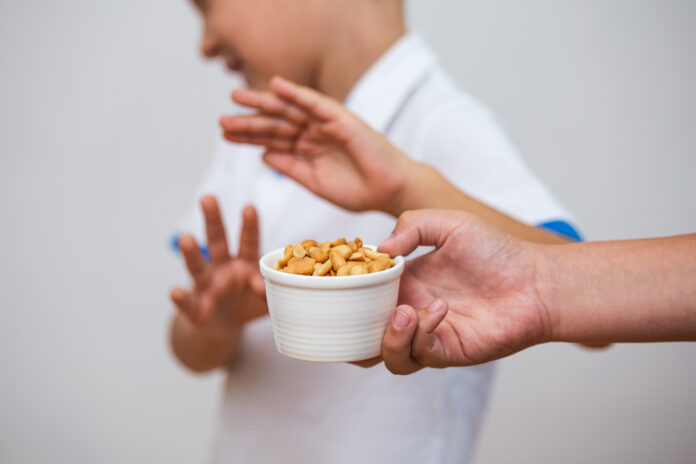A combination of two treatments helped induce remission in children suffering from peanut allergy.
Peanut allergy is the second most common food allergy in the world. Moreover, it’s a leading cause of allergy-related death in children. There is currently no cure for the disease and doctors often recommend total avoidance of the allergen. However, that is often complicated by the presence of trace amounts in various foods. Therefore, there is a need for effective treatments that can help achieve remission, especially in pre-school children. Now, a team led by the Murdoch Children’s Research Institute (MCRI) has discovered two highly effective peanut allergy treatments. They published their findings in The Lancet Child & Adolescent Health.
As there is currently no cure, patients must adhere to strict allergen avoidance, which leads to psychological distress and reduced quality of life.
Professor Mimi Tang, lead researcher
The trial was conducted across three hospitals in Australia: The Royal Children’s Hospital in Melbourne, Perth Children’s Hospital, and the Women’s and Children’s Hospital in Adelaide. Researchers recruited 201 children aged between 1-10 years. As part of the trial, children either received a combination of probiotic and peanut oral immunotherapy, placebo probiotic and peanut oral immunotherapy, or a placebo probiotic and placebo oral immunotherapy. They received the treatment for a period of 18 months, followed by 12 months of follow up after completion of treatment.
Children Enjoy Peanut M&Ms
Approximately half of the children in the treatment group achieved remission, compared to just 5% in the placebo group. 18 months after treatment, 74% of the children who received the peanut oral immunotherapy could tolerate a standard serving of peanuts without suffering an allergic reaction. Furthermore, 51% achieved clinical remission and stopped receiving treatment altogether. And the remaining 24% became desensitized to a standard peanut serving size.
Addition of a probiotic did not significantly improve effectiveness compared to oral immunotherapy, however, it appeared to enhance tolerability of the treatment, with fewer gastrointestinal symptoms, especially in children between one and five years of age.
Professor Mimi Tang, lead researcher
Children in clinical remission could freely eat a standard serving of peanut, equal to a pack of peanut M&Ms. They also reported a greater improvement in their quality of life. Moreover, compared to those just desensitized, children who had achieved clinical remission reported fewer reactions to peanuts.
Reference:
Loke, P., et al. (2022) Probiotic peanut oral immunotherapy versus oral immunotherapy and placebo in children with peanut allergy in Australia (PPOIT-003): a multicentre, randomised, phase 2b trial. The Lancet Child & Adolescent Health. doi.org/10.1016/S2352-4642(22)00006-2.




